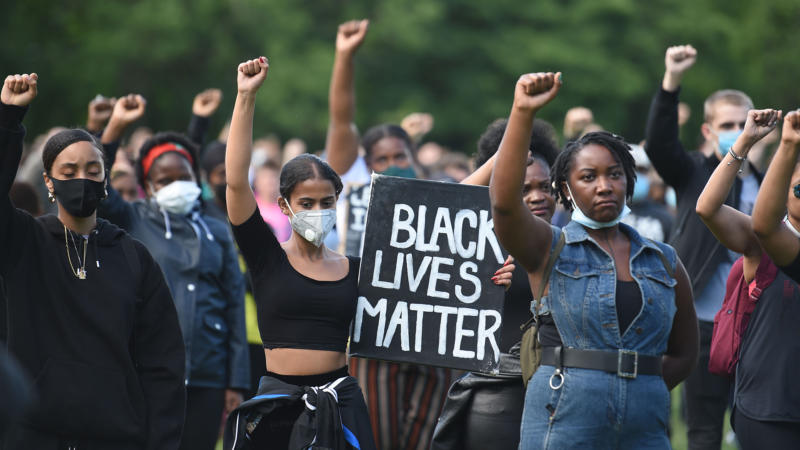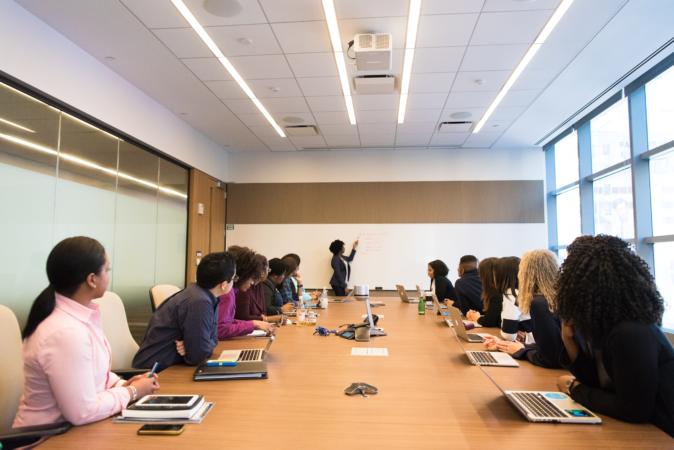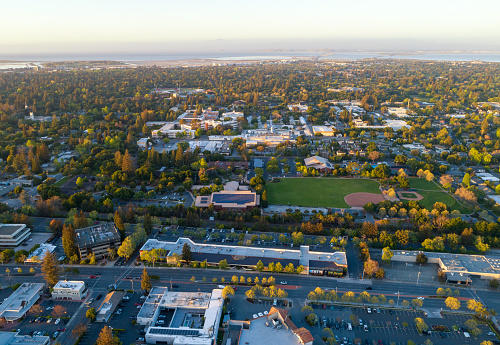All results

Dr. Brian Nwannunu, an adult-reconstruction fellow in orthopedics at Baylor College of Medicine, specializes more than just in the musculoskeletal system; he’s working to diversify the orthopedic surgery industry. The American Academy of Orthopaedic Surgeons reported that as of 2018, 84.7 percent of orthopedic surgeons identify as white, 6.7 percent identify as Asian, and 2.2 percent identify as Hispanic or Latino. This lack of diversity intensifies since only 1.9 percent of orthopedic surgeons identify as Black, and less than one percent are Native American. There isn’t just a lack of diversity in the orthopedic industry; there’s a lack of acceptance that Black people can work in this medical field. “A few of my rotations, the general culture, and the underlying message was, ‘We don’t want anyone that doesn’t look like us,'” Nwannunu, who is a first-generation Nigerian American, told the Houston Chronicle in an interview . “They don’t feel like they can relate to you. They would...

Nearly two-thirds of U.S. consumers surveyed in a new report said they feel like brands have done little to nothing to follow through on the anti-racism pledges they made last summer. Big name brands like Snapchat, adidas, Yelp, and PepsiCo made promises to improve their diversity and inclusion efforts following protests due to the murder of George Floyd. A year later and 34 percent of consumers said brands had done little to tackle their internal racial problems, while 27 percent of consumers believe they have done even less than that. “ Black Lives Matter protests in 2020 were, by volume, the largest demonstrations in American history. As a result, they have had a serious lasting effect on both the national conversation around race, as well as the responsibility of businesses to do their part in tackling racism,” GWI Trends Analyst Doug Gorman said in a press release. “Now more than ever, consumers are actually holding brands accountable for their Corporate Social Responsibility...

On the current trajectory, it would take roughly 95 years for Black professionals working in the national private sector to reach 12 percent representation in management roles, a new report finds. McKinsey & Company published this finding amongst others in its inaugural Race in the Workplace: The Black Experience report. The new report studies Black professionals working in the U.S. private sector, diversity, equity and inclusion programs and what economic success looks like. Walmart, the W.K. Kellogg Foundation, PolicyLink and the McKinsey Institute for Black Economic Mobility collaborated to conduct research on 24 national companies, which represent 3.7 million employees. Monne Williams, Atlanta partner at McKinsey & Company and co-author of the new report, told AfroTech that McKinsey invited a number of companies and they had to opt-in to participate. This initial report focuses on large employees with good industry representation, she said. “We looked at current representation...

One in three BIPOC tech employees feel discriminated against by their employers, a new report finds. While a third of minority tech workers aren’t feeling comfortable at work, 67% of them said their company has a diversity and inclusion team that’s supposed to be focused on making sure they feel welcomed and supported, according to information provided to AfroTech. These findings were published by global data and market research company Savanta. Lead researchers Sadia Corey and Daniel Garcia wanted to publish this report after the civil unrest that swept the nation last year. “We really felt like after the movement from the summer, George Floyd’s death and some of the protests that were happening, we wanted to keep the conversation going and bring some statistics to some feelings and sentiments that we already know about in the U.S. workplace,” Corey told AfroTech. As part of Savanta’s Black Lives Matter: Everywhere, Amplifying the voices of minorities in the workplace report, there...

The 2020 summer of racial reckoning evoked a massive wave of corporate statements acknowledging the global issue of systemic racism and their social responsibility to hold themselves accountable for it. In addition to these corporate companies, asset managers — whose job it is to manage the retirement savings of millions of Black and brown workers — also hold a weighted responsibility to assist in removing systemic racism from our economic system. Today, nonprofit org Majority Action and the Service Employees International Union (SEIU) released Equity in the Boardroom — the first-ever comprehensive report to reveal how “business as usual” proxy voting from asset managers has shaped the nature of corporate action as it relates to racial justice in 2020. NEW REPORT with @SEIU : @BlackRock and @Vanguard_Group voted to undermine shareholder efforts for racial equity, despite public statements in support of racial justice. More: https://t.co/ksT8kbP0Tm pic.twitter.com/UcM9GI1KNS —...

This article was originally published on 04/17/2019 As artificial intelligence gains popularity, members of the public have started to notice how it seems to perpetuate discrimination. With situations like Google Photos misclassifying Black people as gorillas and Amazon’s recruiting tool that taught itself men are the preferred candidates, AI’s problems are clear. In a report released this year , researchers from AI Now stated the industry is facing a “diversity crisis.” Researchers also raised important questions about efforts to improve diversity and AI’s entanglement with old pseudosciences. According to the report, more than 80 percent of professionals in AI are men. At Facebook and Google, women make up only 15 percent and 10 percent of AI research staff, respectively. The data is even worse for Black workers, though, where only 2.5 percent of Google’s workforce is Black, while Facebook and Microsoft sit at 4 percent. Researchers caution that efforts to “focus on women in tech”...

When it comes to the tech industry, Silicon Valley has long reigned as the place to be. However, new research shows things may now be changing. A report by the Brunswick Group has found that Silicon Valley is having difficulties locating new workers, and this may cause issues for the area’s future. For the report, the Brunswick Group surveyed 300 tech workers employed in Silicon Valley in order to understand the industry’s health, market opportunities, impending threats and more. Researchers found that 74 percent of tech workers expect China to be the most serious rival to the San Francisco Bay Area. Respondents also named Austin, Texas, to most likely rival within the United States. This should come as no surprise, especially with Amazon now expanding its Austin Tech Hub . Outside of Austin, cities like Atlanta, Georgia and Raleigh, North Carolina are also becoming major tech hubs . This year, Google even announced plans to expand its Atlanta office . Another thing that came up in...

A new U.K. government report has found that big tech companies — like Amazon, Google, and Facebook — are in need of some serious new antitrust rules. Commissioned by Britain’s finance minister, the Digital Competition Expert Panel’s report pushes back against the idea that digital platforms produce “natural monopolies.” Instead, the report points out how big tech companies are stifling competition and innovation, calling for the U.K.’s laws to be “updated for the digital age” because competition among digital platforms is “not only necessary but also possible.” Jason Furman, former chief economic advisor to Barack Obama, chaired the group behind the report. He told CNBC , “The digital sector has created substantial benefits but these have come at the cost of increasing dominance of the few companies which is limiting competition and consumer choice and innovation.” Take some of the recent mergers in big tech as an example — Amazon now owns WholeFoods plus Facebook acquired both...